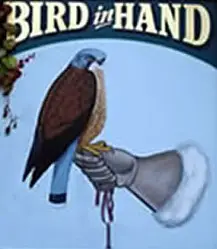How to use this phrase
The proverb A bird in the hand is worth two in the bush is often employed to emphasise the value of certainty over uncertainty, and here are some hypothetical scenarios where it could be effectively used
- When offered a guaranteed bonus at work, I remembered the saying, “a bird in the hand is worth two in the bush,” and accepted it instead of holding out for a potential, but uncertain, larger promotion.
- In the board meeting, the CEO advised caution with the new investment, remarking, “Let’s not forget that a bird in the hand is worth two in the bush,” suggesting that the company should value its current stable assets over risky ventures.
- My grandmother always used to say, “a bird in the hand is worth two in the bush,” which taught me to appreciate what I have instead of always chasing after something more.
- The investor declined the speculative stock options, believing that “a bird in the hand is worth two in the bush,” and chose to stick with his current, steady portfolio.
- Facing a tough decision about moving to a new city for a job, I was reminded of the old adage, “a bird in the hand is worth two in the bush,” and decided to stay where I was with my secure position.
- In her advice column, she wrote, “Remember, a bird in the hand is worth two in the bush, so consider the merits of the opportunities you already possess before seeking new ones.”
- The professor used the phrase “a bird in the hand is worth two in the bush” to illustrate the concept of opportunity cost in economics, emphasising the importance of valuing certain benefits over uncertain ones.
Other interesting references
Alternative phrases to ‘All work and no play makes Jack a dull boy’ Stanley Kubrick considered for The Shining
In the French adaptation of the film, the phrase “All work and no play makes Jack a dull boy” was translated to a culturally relevant idiom, “Un ‘Tiens’ vaut mieux que deux ‘Tu l’auras’,” which conveys a similar message to the English proverb “A bird in the hand is worth two in the bush.” This French version essentially means that having something for certain now is better than the promise of possibly more later. Source.

